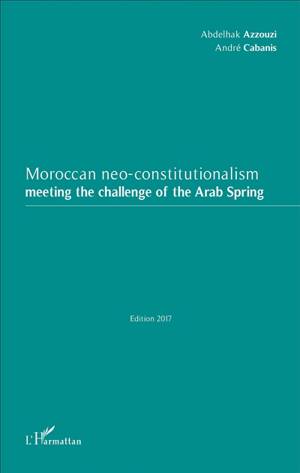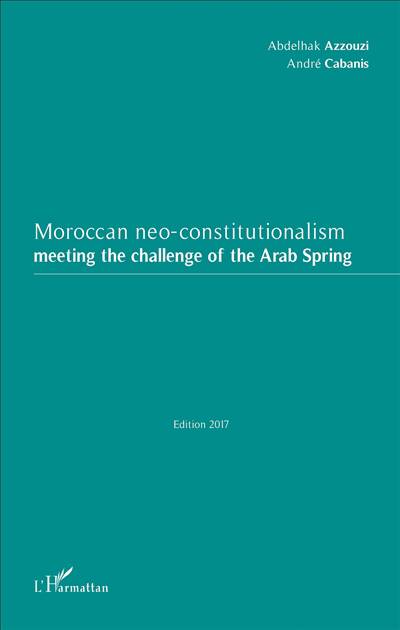
- Retrait gratuit dans votre magasin Club
- 7.000.000 titres dans notre catalogue
- Payer en toute sécurité
- Toujours un magasin près de chez vous
- Retrait gratuit dans votre magasin Club
- 7.000.0000 titres dans notre catalogue
- Payer en toute sécurité
- Toujours un magasin près de chez vous
Moroccan neo-constitutionalism meeting the challenge of the Arab spring
Abdelhak Azzouzi, André CabanisDescription
Any claim at examining the issue of « Moroccan neo-constitutionalism : meeting the challenge of the Arab Spring » is both a necessary and paradoxical task. It is necessary to the extent that we cannot ignore the time that has been chosen for the promulgation of the new July 2011 Constitution, with the aim of meeting the expectations of the different components of the population, particularly the youth. Institutional reforms are not enough to solve all problems, although they provide a strong signal of the ability of the leaders to take into account the bitterness and hopes which, in the rest of the Arab world, have taken a violent form that has generated alternate phases of rioting and repression with their ensuing succession of deaths, sometimes blind persecutions, and economic crisis. Morocco, at least, has managed to avoid such a situation. The examination is a paradoxical one since the constitutional text is set in a continuity that very few countries can match, including a regular development of recognized and protected human rights and civil liberties, in a transition time of a little less than 50 years. This has been coupled by an extension of the role of the head of the government and assemblies, with the appearance and acceptation of a real constitutional control and recognition of the values of decentralization and independent institutional flourishing.
Spécifications
Parties prenantes
- Auteur(s) :
- Editeur:
Contenu
- Nombre de pages :
- 245
- Langue:
- Anglais
Caractéristiques
- EAN:
- 9782343118130
- Date de parution :
- 23-03-17
- Format:
- Livre broché
- Dimensions :
- 160 mm x 240 mm
- Poids :
- 397 g

Les avis
Nous publions uniquement les avis qui respectent les conditions requises. Consultez nos conditions pour les avis.






